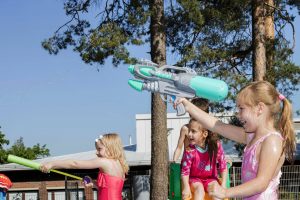 In Finland, we have been doing research on Early Education for long. Our comprehensive and deep results expose the hidden processes of inequality. The leading Finnish newspaper, Helsingin Sanomat, had these research results as main news in 2 August 2019. Early Education can make headlines. This is important, because the processes of inequality are often unconscious and the best way for more equal future is to become aware of the small, but repeating obstacles of equality. The best way to enhance equality is to get a hold of the processes of inequality as early as possible. Read the article.
In Finland, we have been doing research on Early Education for long. Our comprehensive and deep results expose the hidden processes of inequality. The leading Finnish newspaper, Helsingin Sanomat, had these research results as main news in 2 August 2019. Early Education can make headlines. This is important, because the processes of inequality are often unconscious and the best way for more equal future is to become aware of the small, but repeating obstacles of equality. The best way to enhance equality is to get a hold of the processes of inequality as early as possible. Read the article.
Finnish Education Evaluation
 Finnish Education Evaluation Center organized a meeting for the content producers of evaluation 17 June 2019. The goal of the meeting was to enhance the information exchange on the national level, increase national cooperation, decrease overlaping data collection and add perspectives, openness and effectiveness. Jyrki Reunamo presented Progressive Feedback, which has deep, fresh and comprehensive early education evaluation system running in Finland, comprising of more than half of the Finnish Early Education. You can see the presentation at https://karvi.fi/app/uploads/2019/06/Jyrki-Reunamo.pdf.
Finnish Education Evaluation Center organized a meeting for the content producers of evaluation 17 June 2019. The goal of the meeting was to enhance the information exchange on the national level, increase national cooperation, decrease overlaping data collection and add perspectives, openness and effectiveness. Jyrki Reunamo presented Progressive Feedback, which has deep, fresh and comprehensive early education evaluation system running in Finland, comprising of more than half of the Finnish Early Education. You can see the presentation at https://karvi.fi/app/uploads/2019/06/Jyrki-Reunamo.pdf.
CLASS-observation
 To check criterion-validity we will compare the Finnish PF-observation and American CLASS-observation. Both observations will be conducted in the same groups. Yasmin Fong from the Education University of Hong Kong visited Finland to train four observers. Now we have four observers licenced to do CLASS-observations in Finland. It will be interesting to compare the Finnish PF with the American Class. Furthermore, it will be even more interesting to compare Finnish and Hong Kong Early Education based on the two observation methods. Yasmin will train Hong Kong observers to use also PF in Hong Kong. The picture is from CLASS training with Roosa-Maria Laaksonen, Mari Sillman, Yasmin Fong, Jenny Hietanen and Jouni Veijalainen.
To check criterion-validity we will compare the Finnish PF-observation and American CLASS-observation. Both observations will be conducted in the same groups. Yasmin Fong from the Education University of Hong Kong visited Finland to train four observers. Now we have four observers licenced to do CLASS-observations in Finland. It will be interesting to compare the Finnish PF with the American Class. Furthermore, it will be even more interesting to compare Finnish and Hong Kong Early Education based on the two observation methods. Yasmin will train Hong Kong observers to use also PF in Hong Kong. The picture is from CLASS training with Roosa-Maria Laaksonen, Mari Sillman, Yasmin Fong, Jenny Hietanen and Jouni Veijalainen.
Gender differences in self-regulation
If the emotional self-regulation has different criterions for boys and girls, the gender differences may have educational background. How are the teachers self-regulations evaluations and children’s emotional expressions related? Are these relations related to expected gender experiences? Read the article online at https://link.growkudos.com/1e17aifhs74.
Is child-centered pedagogy really good for children’s learning?
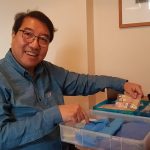 Professor James Ko from the Education University of Hong Kong is visiting Finland. We will test children’s self-management and pre-academic skills both in Finland and Hong Kong. Then we will observe children’s activities and teachers’ activities. in the follow-up study we will test the children again, seeking to find out what kind of learning environment and teaching style is best for children’s learning. This will help teachers, policymakers and parents understand how effective teaching in two contrastive contexts longitudinally affects children’s learning and their influences at multiple levels of surrounding contexts (classroom, school, education system). We will:
Professor James Ko from the Education University of Hong Kong is visiting Finland. We will test children’s self-management and pre-academic skills both in Finland and Hong Kong. Then we will observe children’s activities and teachers’ activities. in the follow-up study we will test the children again, seeking to find out what kind of learning environment and teaching style is best for children’s learning. This will help teachers, policymakers and parents understand how effective teaching in two contrastive contexts longitudinally affects children’s learning and their influences at multiple levels of surrounding contexts (classroom, school, education system). We will:
1. Examine the relationships between effective teaching and childhood development:
a) Whether children can learn more from teachers who show more positive teacher-student interactions;
b) Whether child-led, play-based teaching and teacher-led, academically-focused teaching approach have different impacts;
c) Whether a dominant type of teaching approach results in different learning outcomes;
2. To examine a) whether the above relationships change or strengthen over time (following up across three school years) and b) whether there are individual differences.
In the picture, you can see James presenting the pre-academic test. In our project we have already found several key indicators for a deep zone of proximal development. This is the first time we study the longitudinal effect of that zone!
Children dealing with frustration in early education
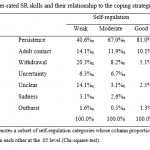 Jouni Veijalainen has been studying children’s emotional expressions in a stressful situation. The children were asked: Think that you fail, what do you do? Jouni studied how children’s descriptions were related to teachers’ evaluations of children’s self-regulation skills. Self-regulation skills have an important role in guiding children with their use and narration of suitable coping strategies on overcoming the frustration effectively. The concrete strategies allow teachers to work concretely with children in enhancing their SR skills and coping strategies further. In the table you see the relation between children’s descriptions and teachers evaluations. These two measures were independent, which increase the criterion validity of the results. The study has been accepted for publication: Veijalainen, J., Reunamo, J., Sajaniemi, N. & Suhonen, E. (In print.) Children’s self-regulation and coping strategies in a frustrated context in early education. South African Journal of Childhood Education.
Jouni Veijalainen has been studying children’s emotional expressions in a stressful situation. The children were asked: Think that you fail, what do you do? Jouni studied how children’s descriptions were related to teachers’ evaluations of children’s self-regulation skills. Self-regulation skills have an important role in guiding children with their use and narration of suitable coping strategies on overcoming the frustration effectively. The concrete strategies allow teachers to work concretely with children in enhancing their SR skills and coping strategies further. In the table you see the relation between children’s descriptions and teachers evaluations. These two measures were independent, which increase the criterion validity of the results. The study has been accepted for publication: Veijalainen, J., Reunamo, J., Sajaniemi, N. & Suhonen, E. (In print.) Children’s self-regulation and coping strategies in a frustrated context in early education. South African Journal of Childhood Education.
Different criterions for boys & girls in self-regulation?
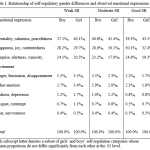 An article by Jouni Veijalainen, Jyrki Reunamo and Minna Heikkilä (Early gender differences in emotional expressions and self-regulation in settings of early childhood education and care) has been accepted for publication in the journal Early Child Development and Care. The article is based on the Progressive feedback data. According to the results, boys practice their self-regulation skills in a different context than girls. Perhaps boys practice their SR skills with a higher intensity of emotions than girls. This may lead to a situation in which boys more easily get into trouble in a school with rules and a low tolerance for disturbance. If boys and girls have different criteria for SR skills in kindergarten, their ability to prohibit their emotions later are different. Is the school ready for both girls’ and boys’ different criteria for SR skills?
An article by Jouni Veijalainen, Jyrki Reunamo and Minna Heikkilä (Early gender differences in emotional expressions and self-regulation in settings of early childhood education and care) has been accepted for publication in the journal Early Child Development and Care. The article is based on the Progressive feedback data. According to the results, boys practice their self-regulation skills in a different context than girls. Perhaps boys practice their SR skills with a higher intensity of emotions than girls. This may lead to a situation in which boys more easily get into trouble in a school with rules and a low tolerance for disturbance. If boys and girls have different criteria for SR skills in kindergarten, their ability to prohibit their emotions later are different. Is the school ready for both girls’ and boys’ different criteria for SR skills?
Interface for a knowledge based Early Learning
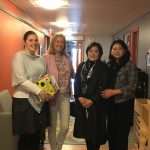 Korea is well-known for its high quality and ambitious education. Especially ambitious is NCSoft with its Laughing Peanut kindergarten, combining research based development, and happy children. Jayoung Koo (Laughing Peanut Design Division, Head of Division) and Juyen Kang (Laughing Peanut Design Division, Team Leader) visited Finland 4-5 April. We seek possibilities to integrate the Finnish Progressive Feedback with the Korean know-how to make a teacher-friendly interface for a knowledge-based Early Education development.
Korea is well-known for its high quality and ambitious education. Especially ambitious is NCSoft with its Laughing Peanut kindergarten, combining research based development, and happy children. Jayoung Koo (Laughing Peanut Design Division, Head of Division) and Juyen Kang (Laughing Peanut Design Division, Team Leader) visited Finland 4-5 April. We seek possibilities to integrate the Finnish Progressive Feedback with the Korean know-how to make a teacher-friendly interface for a knowledge-based Early Education development.
Taiwanese students & professors visit
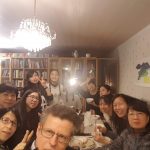 We have long had a fruitful cooperation with Tzu-Chi University. Professor Hui-Chun Lee is visiting Finland in January-February 2019 with her students. At the moment, professor Lee studies the rule breaking behavior in Taiwan and Finland. Professor Li-Chen Wang’s current interest is in physical activity.
We have long had a fruitful cooperation with Tzu-Chi University. Professor Hui-Chun Lee is visiting Finland in January-February 2019 with her students. At the moment, professor Lee studies the rule breaking behavior in Taiwan and Finland. Professor Li-Chen Wang’s current interest is in physical activity.
Progressive play
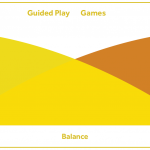 With the support of Lego Foundation we have produced a white paper for Facilitating play. Play is a essential for children’s learning in all kinds of activities. However, play can also get stuck in dead end, increase segregation and be meaningless. The essential element is progressive play. The book is just out, it is available totally free in here.
With the support of Lego Foundation we have produced a white paper for Facilitating play. Play is a essential for children’s learning in all kinds of activities. However, play can also get stuck in dead end, increase segregation and be meaningless. The essential element is progressive play. The book is just out, it is available totally free in here.